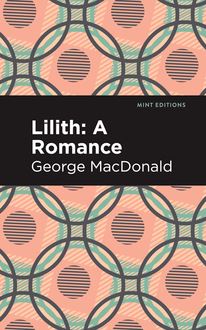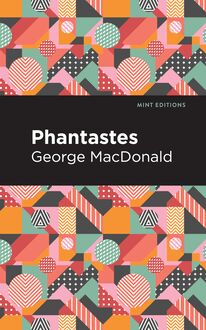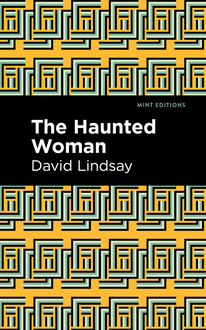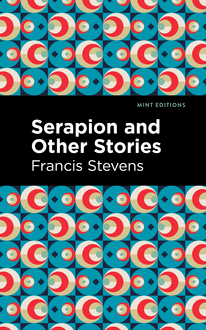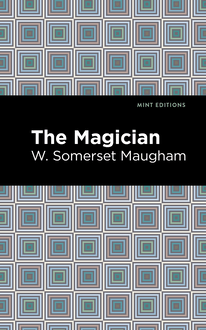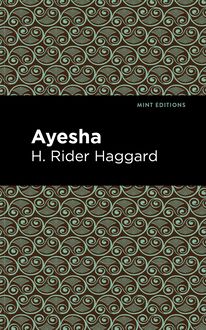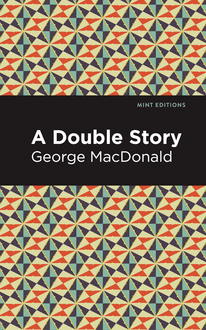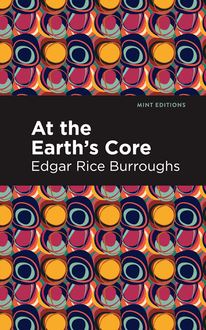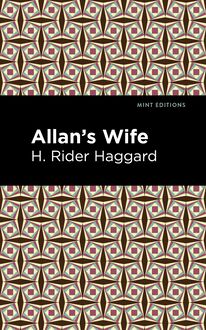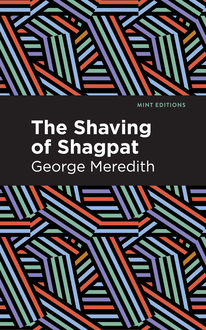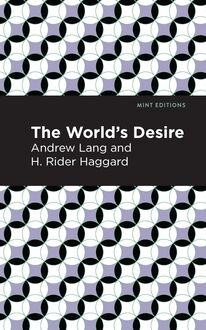-
 Univers
Univers
-
 Ebooks
Ebooks
-
 Livres audio
Livres audio
-
 Presse
Presse
-
 Podcasts
Podcasts
-
 BD
BD
-
 Documents
Documents
-
- Cours
- Révisions
- Ressources pédagogiques
- Sciences de l’éducation
- Manuels scolaires
- Langues
- Travaux de classe
- Annales de BEP
- Etudes supérieures
- Maternelle et primaire
- Fiches de lecture
- Orientation scolaire
- Méthodologie
- Corrigés de devoir
- Annales d’examens et concours
- Annales du bac
- Annales du brevet
- Rapports de stage
La lecture à portée de main
Vous pourrez modifier la taille du texte de cet ouvrage
Découvre YouScribe en t'inscrivant gratuitement
Je m'inscrisDécouvre YouScribe en t'inscrivant gratuitement
Je m'inscrisEn savoir plus
Vous pourrez modifier la taille du texte de cet ouvrage
En savoir plus

Description
The Magician (1909) is a novel by W. Somerset Maugham. Controversial for its portrayal of infidelity and occult ritual, The Magician was instrumental in establishing Maugham’s reputation as a leading author of the late Victorian era. Inspired by stories of Aleister Crowley, an influential occultist and magician, Maugham crafted a masterpiece of fantasy fiction that would inspire Crowley himself to write a hit piece for Vanity Fair erroneously accusing the novelist of plagiarism. Arthur Burdon has everything he could ever want. A successful career as a surgeon, financial stability, a beautiful young fiancée—everything. On a trip to Paris to visit Margaret, who is studying to be an artist, he meets a man named Oliver Haddo, a magician and acquaintance of Burdon’s teacher Dr. Porhoët. Although Arthur, his fiancée, and their friends are initially impressed with Haddo’s magic tricks, things soon take a strange turn when Margaret elopes with the mysterious magician. Distraught, Arthur retreats from life to dedicate himself to his work at the hospital. When Oliver and Margaret show up at a party in London, however, Arthur becomes convinced that his ex-lover is being held against her will. The Magician is a sinister tale of desire, disappointment, and the occult by a master stylist with a keen sense of the complications inherent to human nature. With a beautifully designed cover and professionally typeset manuscript, this edition of W. Somerset Maugham’s The Magician is a classic work of British literature reimagined for modern readers.
Sujets
Informations
| Publié par | Mint Editions |
| Date de parution | 28 mai 2021 |
| Nombre de lectures | 0 |
| EAN13 | 9781513288246 |
| Langue | English |
Informations légales : prix de location à la page 0,0500€. Cette information est donnée uniquement à titre indicatif conformément à la législation en vigueur.
Extrait
The Magician
W. Somerset Maugham
The Magician was first published in 1908.
This edition published by Mint Editions 2021.
ISBN 9781513283227 | E-ISBN 9781513288246
Published by Mint Editions®
minteditionbooks .com
Publishing Director: Jennifer Newens
Design & Production: Rachel Lopez Metzger
Project Manager: Micaela Clark
Typesetting: Westchester Publishing Services
C ONTENTS I II III IV V VI VII VIII IX X XI XII XIII XIV XV XVI
I
A rthur Burdon and Dr. Porho ë t walked in silence. They had lunched at a restaurant in the Boulevard Saint Michel, and were sauntering now in the gardens of the Luxembourg. Dr. Porho ë t walked with stooping shoulders, his hands behind him. He beheld the scene with the eyes of the many painters who have sought by means of the most charming garden in Paris to express their sense of beauty. The grass was scattered with the fallen leaves, but their wan decay little served to give a touch of nature to the artifice of all besides. The trees were neatly surrounded by bushes, and the bushes by trim beds of flowers. But the trees grew without abandonment, as though conscious of the decorative scheme they helped to form. It was autumn, and some were leafless already. Many of the flowers were withered. The formal garden reminded one of a light woman, no longer young, who sought, with faded finery, with powder and paint, to make a brave show of despair. It had those false, difficult smiles of uneasy gaiety, and the pitiful graces which attempt a fascination that the hurrying years have rendered vain.
Dr. Porho ë t drew more closely round his fragile body the heavy cloak which even in summer he could not persuade himself to discard. The best part of his life had been spent in Egypt, in the practice of medicine, and the frigid summers of Europe scarcely warmed his blood. His memory flashed for an instant upon those multi-coloured streets of Alexandria; and then, like a homing bird, it flew to the green woods and the storm-beaten coasts of his native Brittany. His brown eyes were veiled with sudden melancholy.
“Let us wait here for a moment,” he said.
They took two straw-bottomed chairs and sat near the octagonal water which completes with its fountain of Cupids the enchanting artificiality of the Luxembourg. The sun shone more kindly now, and the trees which framed the scene were golden and lovely. A balustrade of stone gracefully enclosed the space, and the flowers, freshly bedded, were very gay. In one corner they could see the squat, quaint towers of Saint Sulpice, and on the other side the uneven roofs of the Boulevard Saint Michel.
The palace was grey and solid. Nurses, some in the white caps of their native province, others with the satin streamers of the nounou , marched sedately two by two, wheeling perambulators and talking. Brightly dressed children trundled hoops or whipped a stubborn top. As he watched them, Dr. Porho ë t’s lips broke into a smile, and it was so tender that his thin face, sallow from long exposure to subtropical suns, was transfigured. He no longer struck you merely as an insignificant little man with hollow cheeks and a thin grey beard; for the weariness of expression which was habitual to him vanished before the charming sympathy of his smile. His sunken eyes glittered with a kindly but ironic good-humour. Now passed a guard in the romantic cloak of a brigand in comic opera and a peaked cap like that of an alguacil . A group of telegraph boys in blue stood round a painter, who was making a sketch—notwithstanding half-frozen fingers. Here and there, in baggy corduroys, tight jackets, and wide-brimmed hats, strolled students who might have stepped from the page of Murger’s immortal romance. But the students now are uneasy with the fear of ridicule, and more often they walk in bowler hats and the neat coats of the boulevardier .
Dr. Porho ë t spoke English fluently, with scarcely a trace of foreign accent, but with an elaboration which suggested that he had learned the language as much from study of the English classics as from conversation.
“And how is Miss Dauncey?” he asked, turning to his friend.
Arthur Burdon smiled.
“Oh, I expect she’s all right. I’ve not seen her today, but I’m going to tea at the studio this afternoon, and we want you to dine with us at the Chien Noir.”
“I shall be much pleased. But do you not wish to be by yourselves?”
“She met me at the station yesterday, and we dined together. We talked steadily from half past six till midnight.”
“Or, rather, she talked and you listened with the delighted attention of a happy lover.”
Arthur Burdon had just arrived in Paris. He was a surgeon on the staff of St. Luke’s, and had come ostensibly to study the methods of the French operators; but his real object was certainly to see Margaret Dauncey. He was furnished with introductions from London surgeons of repute, and had already spent a morning at the H ô tel Dieu, where the operator, warned that his visitor was a bold and skilful surgeon, whose reputation in England was already considerable, had sought to dazzle him by feats that savoured almost of legerdemain. Though the hint of charlatanry in the Frenchman’s methods had not escaped Arthur Burdon’s shrewd eyes, the audacious sureness of his hand had excited his enthusiasm. During luncheon he talked of nothing else, and Dr. Porho ë t, drawing upon his memory, recounted the more extraordinary operations that he had witnessed in Egypt.
He had known Arthur Burdon ever since he was born, and indeed had missed being present at his birth only because the Khedive Isma ï l had summoned him unexpectedly to Cairo. But the Levantine merchant who was Arthur’s father had been his most intimate friend, and it was with singular pleasure that Dr. Porho ë t saw the young man, on his advice, enter his own profession and achieve a distinction which himself had never won.
Though too much interested in the characters of the persons whom chance threw in his path to have much ambition on his own behalf, it pleased him to see it in others. He observed with satisfaction the pride which Arthur took in his calling and the determination, backed by his confidence and talent, to become a master of his art. Dr. Porho ë t knew that a diversity of interests, though it adds charm to a man’s personality, tends to weaken him. To excel one’s fellows it is needful to be circumscribed. He did not regret, therefore, that Arthur in many ways was narrow. Letters and the arts meant little to him. Nor would he trouble himself with the graceful trivialities which make a man a good talker. In mixed company he was content to listen silently to others, and only something very definite to say could tempt him to join in the general conversation. He worked very hard, operating, dissecting, or lecturing at his hospital, and took pains to read every word, not only in English, but in French and German, which was published concerning his profession. Whenever he could snatch a free day he spent it on the golf-links of Sunningdale, for he was an eager and a fine player.
But at the operating-table Arthur was different. He was no longer the awkward man of social intercourse, who was sufficiently conscious of his limitations not to talk of what he did not understand, and sincere enough not to express admiration for what he did not like. Then, on the other hand, a singular exhilaration filled him; he was conscious of his power, and he rejoiced in it. No unforeseen accident was able to confuse him. He seemed to have a positive instinct for operating, and his hand and his brain worked in a manner that appeared almost automatic. He never hesitated, and he had no fear of failure. His success had been no less than his courage, and it was plain that soon his reputation with the public would equal that which he had already won with the profession.
Dr. Porho ë t had been making listless patterns with his stick upon the gravel, and now, with that charming smile of his, turned to Arthur.
“I never cease to be astonished at the unexpectedness of human nature,” he remarked. “It is really very surprising that a man like you should fall so deeply in love with a girl like Margaret Dauncey.”
Arthur made no reply, and Dr. Porho ë t, fearing that his words might offend, hastened to explain.
“You know as well as I do that I think her a very charming young person. She has beauty and grace and sympathy. But your characters are more different than chalk and cheese. Notwithstanding your birth in the East and your boyhood spent amid the very scenes of the Thousand and One Nights, you are the most matter-of-fact creature I have ever come across.”
“I see no harm in your saying insular,” smiled Arthur. “I confess that I have no imagination and no sense of humour. I am a plain, practical man, but I can see to the end of my nose with extreme clearness. Fortunately it is rather a long one.”
“One of my cherished ideas is that it is impossible to love without imagination.”
Again Arthur Burdon made no reply, but a curious look came into his eyes as he gazed in front of him. It was the look which might fill the passionate eyes of a mystic when he saw in ecstasy the Divine Lady of his constant prayers.
“But Miss Dauncey has none of that narrowness of outlook which, if you forgive my saying so, is perhaps the secret of your strength. She has a delightful enthusiasm for every form of art. Beauty really means as much to her as bread and butter to the more soberly-minded. And she takes a passionate interest in the variety of life.”
“It is right that Margaret should care for beauty, since there is beauty in every inch of her,” answered Arthur.
He was too reticent to proceed to any analysis of his feelings; but he knew that he had cared for her first on account of the physical perfection which contrasted so astonishingly with the countless deformities in the study of which his life was spent. But one phrase escaped him almost against his will.
“The
-
 Univers
Univers
-
 Ebooks
Ebooks
-
 Livres audio
Livres audio
-
 Presse
Presse
-
 Podcasts
Podcasts
-
 BD
BD
-
 Documents
Documents
-
Jeunesse
-
Littérature
-
Ressources professionnelles
-
Santé et bien-être
-
Savoirs
-
Education
-
Loisirs et hobbies
-
Art, musique et cinéma
-
Actualité et débat de société
-
Jeunesse
-
Littérature
-
Ressources professionnelles
-
Santé et bien-être
-
Savoirs
-
Education
-
Loisirs et hobbies
-
Art, musique et cinéma
-
Actualité et débat de société
-
Actualités
-
Lifestyle
-
Presse jeunesse
-
Presse professionnelle
-
Pratique
-
Presse sportive
-
Presse internationale
-
Culture & Médias
-
Action et Aventures
-
Science-fiction et Fantasy
-
Société
-
Jeunesse
-
Littérature
-
Ressources professionnelles
-
Santé et bien-être
-
Savoirs
-
Education
-
Loisirs et hobbies
-
Art, musique et cinéma
-
Actualité et débat de société
- Cours
- Révisions
- Ressources pédagogiques
- Sciences de l’éducation
- Manuels scolaires
- Langues
- Travaux de classe
- Annales de BEP
- Etudes supérieures
- Maternelle et primaire
- Fiches de lecture
- Orientation scolaire
- Méthodologie
- Corrigés de devoir
- Annales d’examens et concours
- Annales du bac
- Annales du brevet
- Rapports de stage
